This article explains how the “All-On-4” procedure can save patients tens of thousands of dollars on implantation cost of fixed oral rehabilitation in Chicago.
Just as there are many different kinds of dental technologies for Chicago residents in need of new teeth, so are there different kinds of dental implant techniques. The newest and most sophisticated of these techniques is the “All-On-4”, which dental implants specialists in Chicago typically recommend to patients who have lost most or all of their teeth to periodontal (gum) disease. Traditionally, however, cost has been a primary concern of Chicago residents, especially when it comes to teeth replacement using dental implants. In this article, just such a specialist will explain to us how it is the “All-On-4” can save patients tens of thousands of dollars on the cost of fixed oral rehabilitation.

The “All-On-4” Needs Fewer Implants
The “All-On-4” only requires four dental implants, as the name of the procedure suggests, as opposed to six, eight or even more per arch. This is frequently the number of implants required by traditional dental implant protocols and is also why these older procedures would take up to a year and a half to provide patients with new implant teeth in Chicago.
The “All-On-4” Can Be Done in One Day
Because of the fewer implants required, the entire teeth replacement procedure can be completed in as little as a single day, with a single surgery. “Previously, getting a new set of teeth would require multiple implant procedures and up to 18 months in and out of the dentist’s chair, the costs of which would add up tremendously,” says the dental implants specialist in Chicago. “This is not even to mention the inconveniences involved and the time a patient would have to take off from work. With the “All-On-4” these concerns don’t typically come in the way of our patients receiving new teeth anymore.”
The “All-On-4” Cost: Bye Bye Bone Grafting!
One of the biggest obstacles in the path of edentulous (toothless) and near-edentulous patients getting new teeth placed with dental implants was a lack of sufficient bone volume in the jaw. Since being toothless causes the bone to atrophy, those who stood to benefit the most from getting new implant teeth in Chicago typically experienced this problem!
 Traditional dental implant protocols were incapable of overcoming this problem and so dental implants specialists in Chicago would have to perform bone-grafting surgery beforehand. This procedure is not only incredibly invasive and painful, but it also requires many months of recovery time before the patient can be considered a candidate for dental implants. Bone grafting is also very expensive, especially if the bone tissue is sourced outside the patient’s body, as it typically is. And so, yet another expense is added to the bill for the patients who desperately need new teeth.
Traditional dental implant protocols were incapable of overcoming this problem and so dental implants specialists in Chicago would have to perform bone-grafting surgery beforehand. This procedure is not only incredibly invasive and painful, but it also requires many months of recovery time before the patient can be considered a candidate for dental implants. Bone grafting is also very expensive, especially if the bone tissue is sourced outside the patient’s body, as it typically is. And so, yet another expense is added to the bill for the patients who desperately need new teeth.The “All-On-4” Cost Difference
With the “All-On-4”, a lack of bone volume is almost never a problem! Dental implants specialists in Chicago carefully scrutinize X-rays of a patient’s jawbone to determine where the very best sites for implant placement are and, based upon the clever design of the protocol, can almost always proceed without the need for costly, painful bone grafting. This also cuts down treatment time, making it possible for Chicago residents to receive new, fixed and immediately functional teeth in just one day.
With only four dental implants, a single treatment and no need for bone grafting, the “All-On-4” can be as much as $45,000 less than the cost for traditional dental implant techniques. On average, it saves patients $25,000 on getting new implant teeth in Chicago, which explains exactly why this breakthrough protocol is widely regarded as the best solution to edentulism, near-edentulism and rampant tooth loss!
 “Too many patients make the mistake of avoiding treatment or choosing the inferior dental technology because they are concerned about money,” says the implant dentist in Chicago. “What they don’t realize is that we, as dental healthcare practitioners, prioritize treatment and the health of our patients. As such, we work closely with medical financing companies that provide tailor-made payment plans to help patients cover the costs of a procedure or treatment. This can be done over any number of months, depending upon your budget and financial means. Either way, you can benefit from the very best treatment option without having to dig too deep.”
“Too many patients make the mistake of avoiding treatment or choosing the inferior dental technology because they are concerned about money,” says the implant dentist in Chicago. “What they don’t realize is that we, as dental healthcare practitioners, prioritize treatment and the health of our patients. As such, we work closely with medical financing companies that provide tailor-made payment plans to help patients cover the costs of a procedure or treatment. This can be done over any number of months, depending upon your budget and financial means. Either way, you can benefit from the very best treatment option without having to dig too deep.” “Your dentist can tell from the condition of your teeth and gums just how you care for them when you’re at home. We can tell whether or not you floss and just how frequently and thoroughly you brush your teeth,” says the implant dentist in Chicago. “Even if you brush your teeth twice a day, as is widely recommended, there can be space for improvement, so speak to us about what we see and how you can do better with caring for your teeth and gums.”
“Your dentist can tell from the condition of your teeth and gums just how you care for them when you’re at home. We can tell whether or not you floss and just how frequently and thoroughly you brush your teeth,” says the implant dentist in Chicago. “Even if you brush your teeth twice a day, as is widely recommended, there can be space for improvement, so speak to us about what we see and how you can do better with caring for your teeth and gums.” The receptionist at your Chicago dental office usually keeps a detailed medical history of every patient they have on file. This is usually reviewed by the dentist and oral hygienist when you go in for an appointment, so that any treatment or medication they recommend to you won’t come into conflict with any medical condition or medication you might have, or are already taking respectively. This is why it’s so important that you keep your medical history contemporary. “The next time you see your dentist, speak to the receptionist about updating your medical history,” recommends a new teeth specialist in Chicago. “This will help your dentist stay right up-to-date on your general health, which, believe it or not, plays a fundamental role in dental health.”
The receptionist at your Chicago dental office usually keeps a detailed medical history of every patient they have on file. This is usually reviewed by the dentist and oral hygienist when you go in for an appointment, so that any treatment or medication they recommend to you won’t come into conflict with any medical condition or medication you might have, or are already taking respectively. This is why it’s so important that you keep your medical history contemporary. “The next time you see your dentist, speak to the receptionist about updating your medical history,” recommends a new teeth specialist in Chicago. “This will help your dentist stay right up-to-date on your general health, which, believe it or not, plays a fundamental role in dental health.” “Several different medications have an impact upon oral health,” explains a new teeth specialist in Chicago. “We see this all the time. Patients who are on high blood pressure tablets or anti-depression pills tend to suffer from dry mouth, which leaves the teeth more vulnerable to decay and cavities. Gum problems are also common amongst patients on these kinds of medications. This is why we like patients to tell us about any chronic medications they might be on, so that we can offset the side effects to the best of our abilities. We’ll also educate patients in how to better care for their teeth, considering the impact of any medicines or supplements they may be taking.”
“Several different medications have an impact upon oral health,” explains a new teeth specialist in Chicago. “We see this all the time. Patients who are on high blood pressure tablets or anti-depression pills tend to suffer from dry mouth, which leaves the teeth more vulnerable to decay and cavities. Gum problems are also common amongst patients on these kinds of medications. This is why we like patients to tell us about any chronic medications they might be on, so that we can offset the side effects to the best of our abilities. We’ll also educate patients in how to better care for their teeth, considering the impact of any medicines or supplements they may be taking.”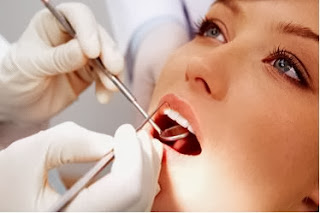 “When it’s time for your annual or bi-annual appointment with the dentist, take a good hard look at your teeth and gums in the mirror beforehand and make a list of any problems you may have had or change you may have noticed,” advises an experienced dental implants Chicago specialist. “Then, when he or she sits down with you at the beginning of your consultation make sure you raise each issue so that they know what to be on the lookout for.”
“When it’s time for your annual or bi-annual appointment with the dentist, take a good hard look at your teeth and gums in the mirror beforehand and make a list of any problems you may have had or change you may have noticed,” advises an experienced dental implants Chicago specialist. “Then, when he or she sits down with you at the beginning of your consultation make sure you raise each issue so that they know what to be on the lookout for.”
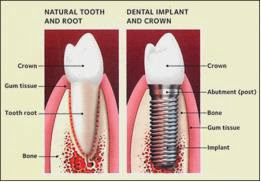
 Although the ‘Teeth in a Day’ procedure initially appears to cost Chicago residents more than alternate tooth replacement strategies, in the long term they end up saving you money.
Although the ‘Teeth in a Day’ procedure initially appears to cost Chicago residents more than alternate tooth replacement strategies, in the long term they end up saving you money. “Dental implants are fast becoming the most popular choice in tooth replacement strategies, and are recognized as the best solution for multiple and single tooth replacement,” says an implant dentist in Chicago. “Despite these facts, medical insurances cover little, or none, of the costs associated with dental implants.”
“Dental implants are fast becoming the most popular choice in tooth replacement strategies, and are recognized as the best solution for multiple and single tooth replacement,” says an implant dentist in Chicago. “Despite these facts, medical insurances cover little, or none, of the costs associated with dental implants.” Working together with financing companies and your budget, the dentist will be willing to determine a payment plan that works with your budget. This payment plan usually breaks the cost of dental implants down into monthly installments, making it all far more manageable.
Working together with financing companies and your budget, the dentist will be willing to determine a payment plan that works with your budget. This payment plan usually breaks the cost of dental implants down into monthly installments, making it all far more manageable.


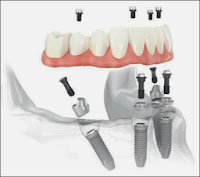 The procedure is typically performed with the patient comfortably sedated, allowing them to rest easy while the dentist works his or her magic. During the healing process it is possible for patients to experience small amounts of pain and discomfort, but this can be managed with mild pain medications that will be prescribed to you by your implant dentist in Chicago.
The procedure is typically performed with the patient comfortably sedated, allowing them to rest easy while the dentist works his or her magic. During the healing process it is possible for patients to experience small amounts of pain and discomfort, but this can be managed with mild pain medications that will be prescribed to you by your implant dentist in Chicago.
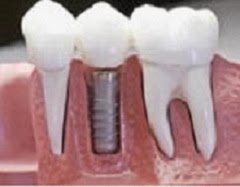
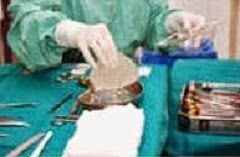


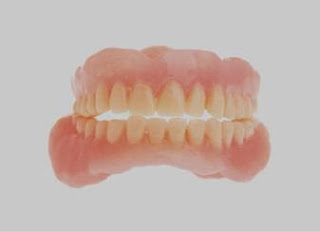





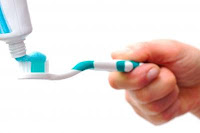 "Everyone should maintain a thorough at-home oral hygiene routine," says the Chicago dental implant specialist. "Brushing, flossing and rinsing are the foundation habits that will help to prevent decay and gum disease and in doing so, keep your teeth and gums healthy. You shower everyday to keep your body clean, so you should be doing what it takes to keep your mouth clean as well."
"Everyone should maintain a thorough at-home oral hygiene routine," says the Chicago dental implant specialist. "Brushing, flossing and rinsing are the foundation habits that will help to prevent decay and gum disease and in doing so, keep your teeth and gums healthy. You shower everyday to keep your body clean, so you should be doing what it takes to keep your mouth clean as well."

